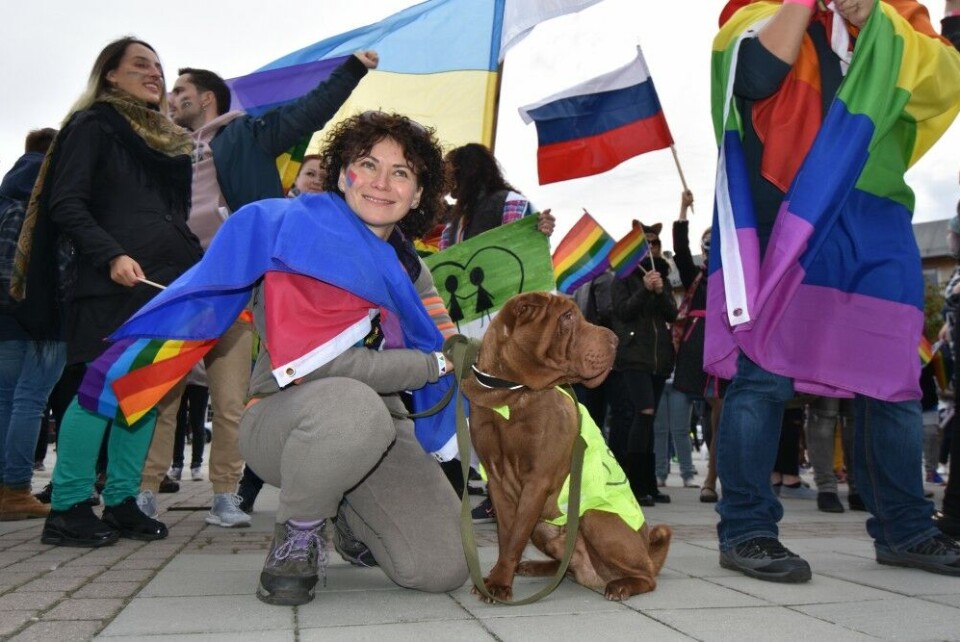
Valentina receives death threats after getting Stoltenberg award
The Murmansk LGBT activist says she takes the threats seriously.
Valentina Likoshva has called on the police to investigate death threats against her posted on the Vkontakte social media channel. The text is linked under an article in regional news-online Severpost about Likoshva recently being awarded the Barents prize named after Thorvald Stoltenberg.
It was 7x7 Journal that first reported about the death threats against the well-known Murmansk activist.
Valentina Likoshva says she has low expectations regarding the police’s interest in the case.
“These are not my first reports to the police and the prosecutor’s office. I’m very disappointed with systematic failures,” she said to 7x7 Journal.
“Lack of full-fledged investigations into these allegations leads to the fact that not only comments that humiliate my human dignity appear, but also such threats,” Likoshva says.
Under the article about her Stoltenberg award, there is a call to “Shoot the carrion!” Another post simply reads “Burn.”
She considers these statements to be calls for her murder.
“I took these threats realistically and now I fear their implementation,” Valentina Likoshva says.
It was in mid-February the LGBT activist from Russia’s Arctic capital got Stoltenberg’s award for her work on minority rights in the Barents Region.
“Valentina gets the prize for her work over many years for social justice, equality, health and human rights in the Barents region,” the former Norwegian foreign minister’s grandson, Emil Aas Stoltenberg, said in the announcement.
The purpose of the Barents cooperation is to strengthen east-west infrastructure, establish people-to-people contacts and thereby contribute to the economic, cultural and social development of the Region. The Barents Cooperation promotes people-to-people contacts and economic development and creates good conditions for interregional exchange in many different fields like culture, indigenous peoples, youth, education, trade, environment, transportation and health.
In recent years, the cross-border people’s cooperation has been troubled by severe crackdowns on civil society by Russian authorities.
Many of the non-governmental organizations previously key to the Barents cooperation have been added to Kremlin’s “foreign agent” list, forcing many to cease activities. One such organization was the LGBT-friendly NGO Maximum in Murmansk. The organization provided psychiatric support for youth and arranged seminars and meetings with similar organizations in the Barents region.
















